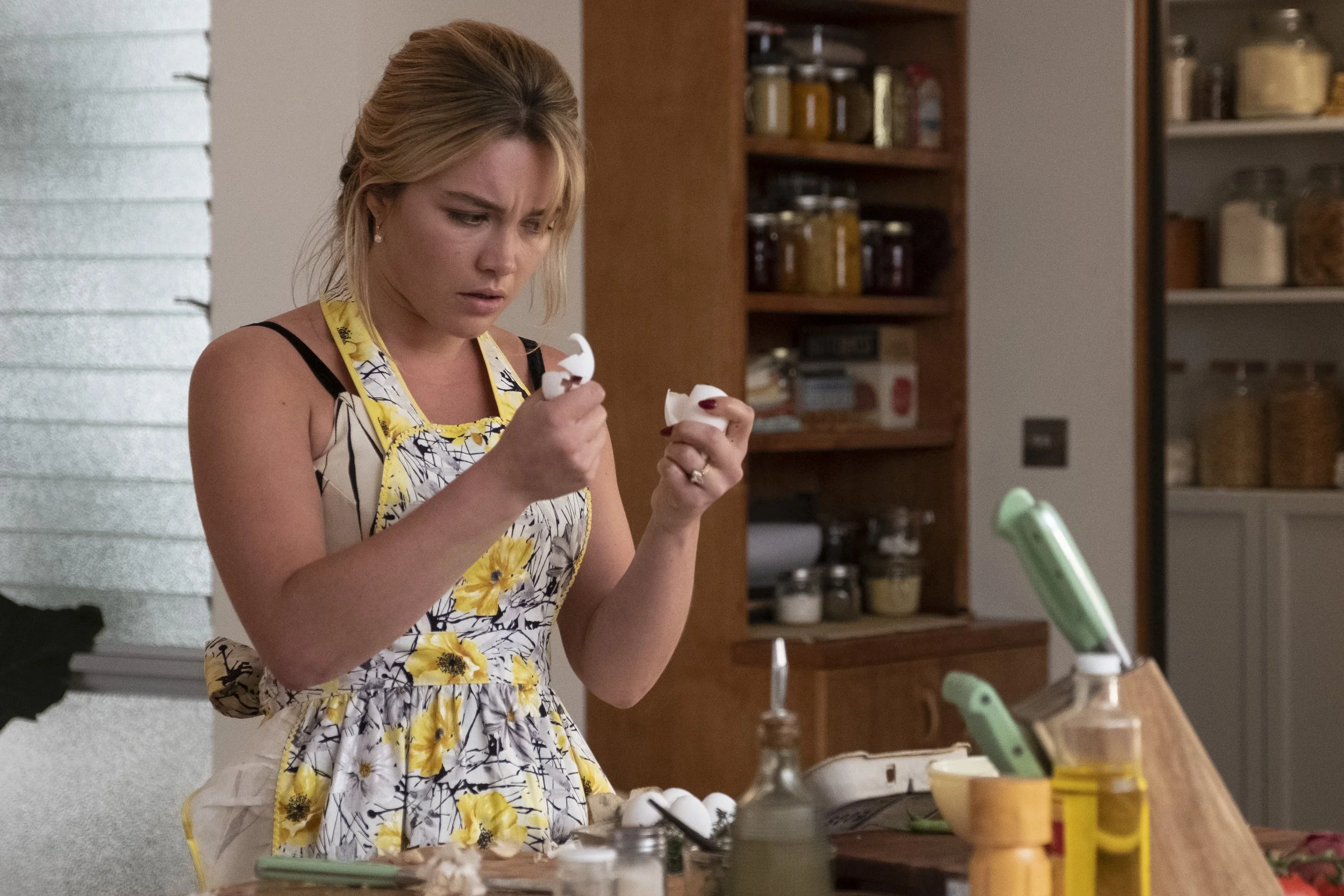Ukrainians in Exile (2022)
Ukraine as a Membrane
The problem with Ukrainians in Exile is that it fails the “Documentaries for Martians” test.
Imagine you’re Joe Morton’s character from Brother From Another Planet. You’ve just landed on Earth with basic knowledge of how your own species works (eat, fight, fuck, etc.), but very little understanding of humanity’s seemingly peculiar ways. The first person you encounter is a talented and very passionate young filmmaker named Janek Ambrose, who offers to buy you a sandwich in exchange for giving feedback on his new 6-minute short, which, he says, is about real people seeking refuge from an invading army.
The film begins with stirring music over an impressionistic dance of white and black shapes. These soon coalesce into train tracks whizzing by in the snow. A sad voice announcing herself as “Anya” talks of fleeing the Russians, who, in the course of a 38-day attack, have “almost completely destroyed” the city of Harkiv, leaving countless women and children’s bodies in their wake. On screen, the sky is a dazzling blue, a painterly backdrop for well-preserved, classic architecture towering over rosy-cheeked commuters crowded on train platforms. Despite Anya’s heavy-hearted testimony, there is no urgency to the images, no tears on the faces, no rubble or smoke in the background. The scene looks, incongruously, like a dozen holiday rush hours in a dozen developed cities.
There are, in fact, only two visual cues that something is out of the ordinary here. The first is a late-in-the-film closeup of wood planks burning in a metal trash can; you can just discern people moving about in the background. The object is significant only because of what it evokes in the language of cinema (i.e. hobos crowding around similar fires for warmth in old movies)—not because the visual story thus far has explained what it’s doing in what might as well be a public transit commercial.
The second indicator involves soldiers marching down a sidewalk, followed by a scene of armored vehicles driving down the street. Both are set against the backdrop of, or mixed in with, regular traffic. The uniforms are clean, the vehicles unmarred; the soldiers’ dispositions are as casual as those of the pedestrians strolling by Humvees on a nearby overpass walkway.
You think back a few seconds, to when Anya declared, “It’s not a war anymore, it’s a crime”, and begin to wonder if Ambrose has attached the wrong audio track to his film.
Alright, let’s drop the metaphor.
(We’ll just say Mr. Morton got his sandwich and beamed home, utterly confused.)
From start to finish, Ukrainians in Exile is a puzzlement. Neither Anya nor Ambrose give context to the invasion. Who is Russia? What is its relationship to Ukraine? What are both countries’ relationship to the wider world? It’s a lot to cover in 6 minutes, but a couple of title cards would suffice—or maybe not: the conflicts and corruption on both sides span decades, and I’m sure workaday Ukrainians were anxious long before Putin’s tanks rolled in. If it didn’t fully make up for the clash between visuals and story (there are no post-invasion-Iraq docs that I can think with this much “tourism B-roll” flare), it would’ve been something, at least.
As is, the short plays like the “Before” segment of a much longer film about war, during which we’d see the tragic carnage described here but not evidenced. Even later shots of what I assume is supposed to be a refugee soup line look indistinguishable from a late-October tailgate party for the Chicago Bears (and, yes, that includes a blink-and-you’ll-miss-it blue tent in the background). The servers and recipients smile at each other, and for the camera. A pair of soldiers looking out upon an unruined city appears not as battle-weary sentinels, but as National Guardsmen waiting for some civilian chow before heading back to base.
Even the closing scene of children waving goodbye and drawing condensation hearts on the windows of their departing train has the sappy feel of a Hallmark movie. Neither they, nor whomever it is they’re waving to, appear shellshocked, distraught, or even slightly upset at the farewell. Yet this merry-and-bright image is undercut by Anya’s solemn wish: “We just hope that his war would end and killings and death would end.”
During the closing cut to black, I half expected to hear Sarah McLachlan singing “I Will Remember You” over UNICEF title cards, intercut with the muted video of R.E.M.’s “Shiny Happy People”.
Understand that I am in no way downplaying the horrors experienced by the Ukrainian people in the eleven or so months since this documentary took place. In fact, during that time, I found a more compelling version of this story in the strangest of places.
Bonus points for those of you who instantly thought of the Cesar-and-Alona, Yara-and-Jovi, and Natalie-and-Michael storylines from the latest season of 90 Day Fiancé: Happily Ever After. This cornball (and oh-so-shamefully-addictive) spinoff of a reality TV juggernaut is ostensibly about unlikely international love connections. This season, though, deftly showed how the war deeply affected its Ukranian cast members (not to mention the overall production).
You’ll have to take my word for it that the on-screen emotions were real (or real enough) At the very least the showrunners got their key ducks of visuals, narrative, and narration in a row, resulting in the most believable storyline the 90DFTVU* has ever seen.
Perhaps Ambrose will roll Ukrainians in Exile into a more expansive and coherent feature someday. As it stands, the problem at the heart of his first-to-market approach can be found, metaphorically, in a couple of places within the movie. We are invited to peek through a keyhole that moves shakily within a small section of an utterly black screen. Beyond this pitch-dark obstruction is a sleepy side street, a tease of a greater context whose significance we can only guess at.
It’s visually disorienting, even alien.
Make that alienating.
*90 Day Fiancé Television Universe.





